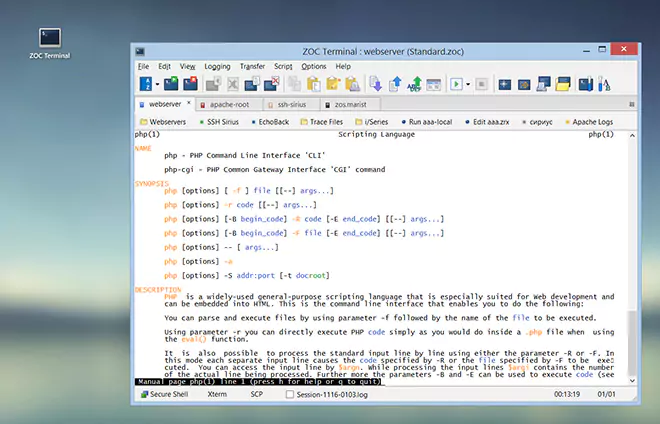Scripting Methods → Command Placement, Parameters, Style, etc.
In PyroBatchFTP command files, the following applies to command and parameter pacement:
Comment
Comments can be placed in script on lines that begin with "//", "#" or ";"
followed by a space character. It is not possible to place comments in the
same line with commands.
Comments that start with '##' will not be shown in the progress window and
will be excluded from the log file.
Commands
Commands can be written in upper or lower case with eactly one command per
line. It is possible to indent commands using space or tab.
Parameters
If commands require parameters, the parameters are provided after the
command word. An optional "(" character may appear between the command
and parameters. Space, Tab or "," can be used as a separators
between parameters. Parameters which contain space characters must be enclosed
in single our double quotes.
Ignore Errors
It is possible to prefix a command with a dash ("-") to suppress error checking
for this command. Commands that start with a dash will be always be treated
as successful.
Retry Errors
Commands may be prefixed by an "@" character to retry them in case of errors
(see SetRetry command).
Style
The above rules allow the writing of command files in different styles, depending
on your preference. However, we recommend using double quotes and commas.
Connect "0555723", "joedoe", "secret"
Milestone "Filename", "servers.log"
LocalRename "file1.dat", "file2.dat"
// Correct (although sometimes surprising)
Milestone Filename "servers.log"
Milestone "Filename" servers.log
@Connect 0555723 joedoe secret
Connect "0555723" joedoe secret
Connect 0555723 'joedoe' "secret"
Connect(0555723, 'joedoe' "secret")
LOCALRENAME file1.dat file2.dat
localrename "file1.dat" "file2.dat"
LocalRename "file1.dat", "file2.dat"
localrename("file1.dat", "file2.dat")
-localrename('file1.dat', 'file2.dat')
LOCALrename('new sales.dat' 'old sales.dat')
DISCONNECT()
; Incorrect commands:
localrename old sales.dat new sales.dat
localrename, file1.dat, file2.dat
localrename "file1.dat', file2.dat
@-localrename "file1.dat", "file2.dat"
← Back to Scripting Methods

